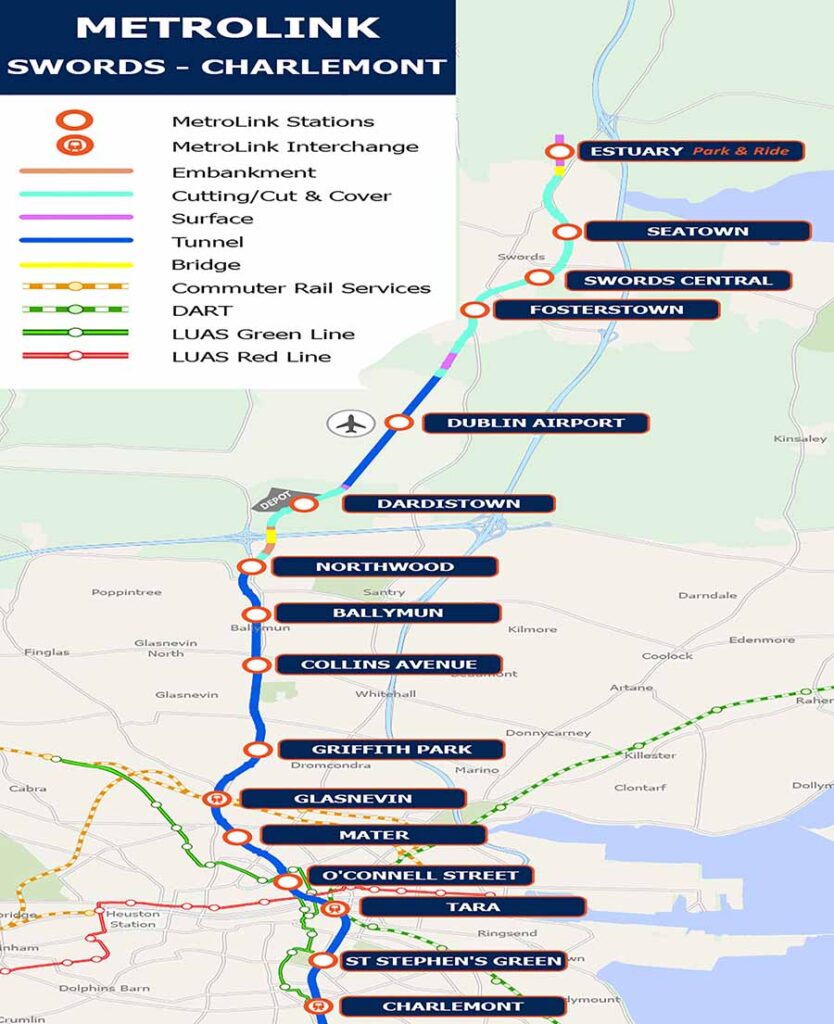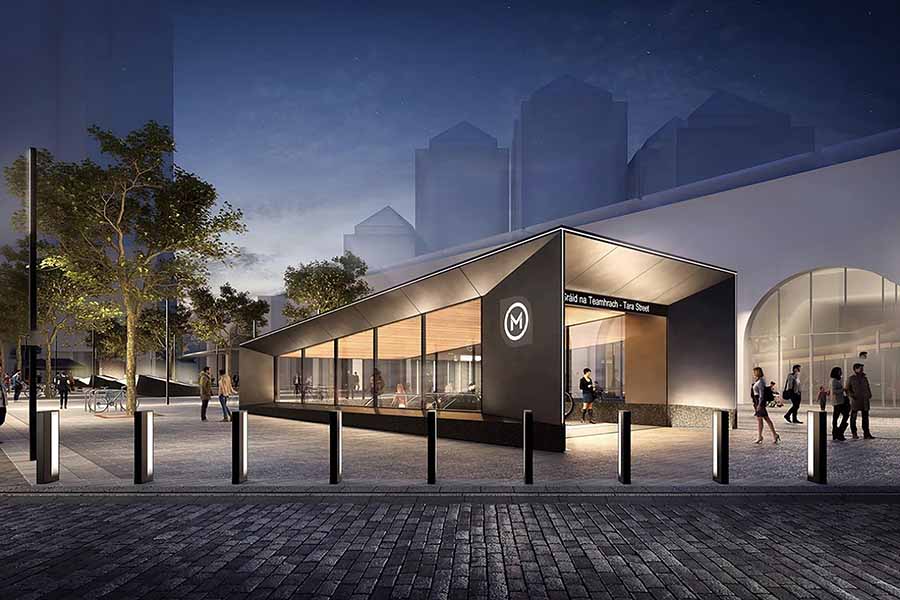
Transport Infrastructure Ireland (TII) told the Metro Oral hearing that congestion could cost the Irish economy €2bn annually over the next decade.
In an oral hearing attended by 200 people in Dublin’s Gresham Hotel, MetroLink Project Director Aidan Foley reported on Dublin’s ranking as the 35th most congested city globally in 2021, with commuters spending over 213 hours yearly in traffic.
In Swords, where MetroLink is set to start, only 12% of the 8,000 workers commuting to Dublin city centre currently use public transport.
The Swords-Dublin Airport-Dublin city centre corridor faces critical congestion levels, impacting the Irish economy significantly.
During the nine-year construction of MetroLink, TII acknowledges disruptions to people’s lives, ensuring appropriate construction methodologies to minimize adverse effects on buildings above.
Measures to limit noise and vibration effects during construction include noise blankets, monitored by vibration and settlement devices; a Property Owners Protection Scheme offers pre- and post-construction surveys and up to €45,000 for remedying damage, with legal recourse available.
TII’s communication plan aims to inform the public and affected individuals through visitor information centres and regular meetings, with 17% of qualifying property owners enrolled in the Property Owners Protection Scheme.
Róisín Burke of Fingal County Council told the hearing that it supports the Metrolink project and believes Fingal will be transformed by the project.
Dublin City Planner Deirdre Scully said Metrolink will improve the pedestrian and cycling experience in the city core and approach routes to the city.
An Taisce said that Metrolink should not be used as a reason to increase capacity at Dublin Airport and that cost controls need to be considered due to the experience at the National Children’s Hospital.
Aidan Foley said: “The inefficiency of the transportation system hides a lot of additional socio-economic costs. People leave earlier in the mornings to avoid the peak-hour rush, making the transportation system look like it is more efficient than it is, and it hides other costs. It puts pressure on families, with one or more parent being absent from the home for longer periods. That leads to increased childcare demands and increased pressure on parents in the household, which can create a cycle of increased stress, reduced disposable income and reduced quality of life.”
Ronan Hallissey, director of environment with Jacobs Engineering, one of the contractors said “the scheme’s delivery will provide benefits to an even greater number of people than was predicted before,” he said, but he added there was a flip-side to this. “Conversely, a greater number of people will be potentially impacted by the effects of the scheme during the construction phase.”






